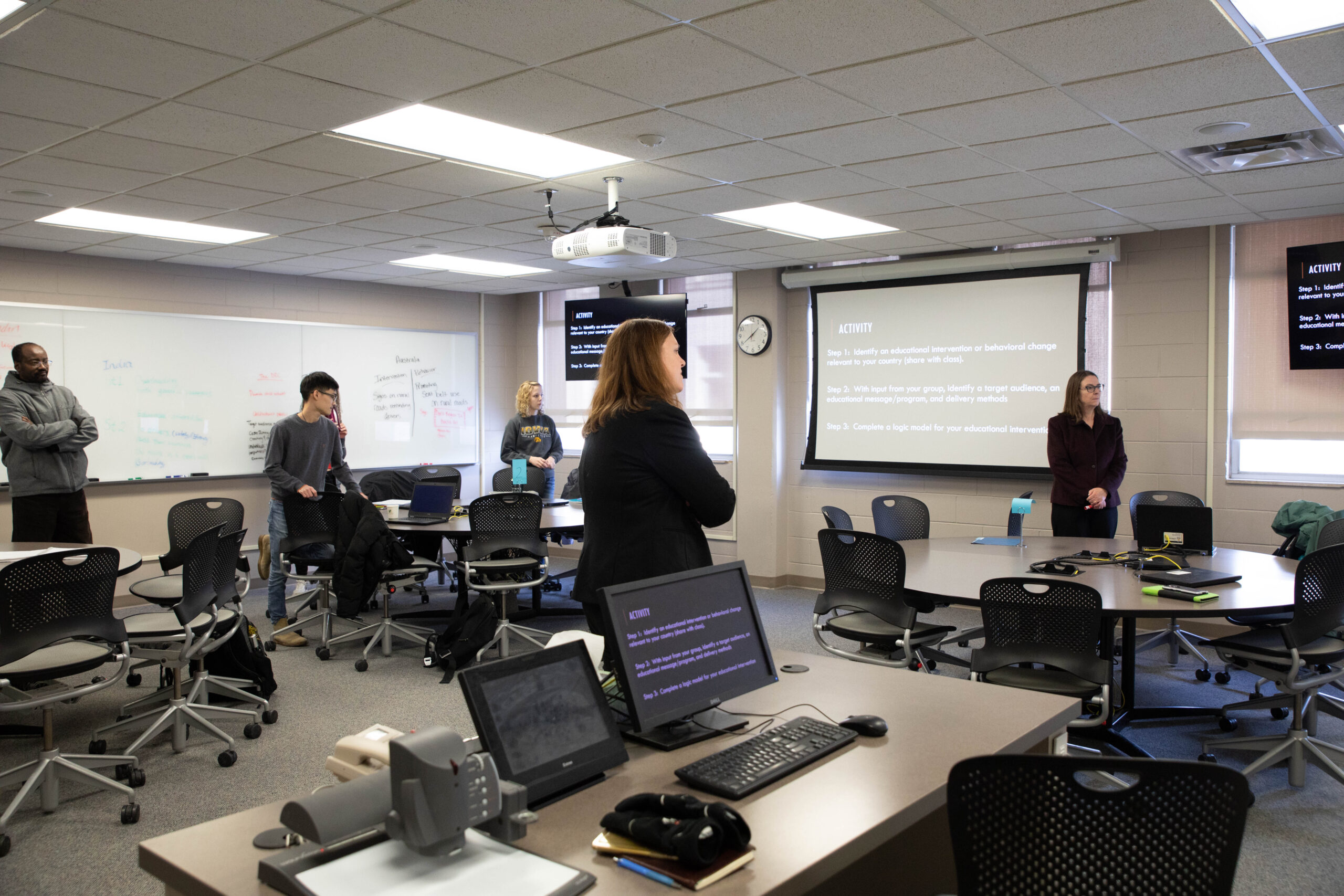Curriculum

injury and violence prevention courses
Students may study at the College of Public Health, which offers both Master’s (MPH, MS) and doctoral (PhD) degrees.
In the College of Public Health, our students are from the Departments of Occupational and Environmental Health, Epidemiology and Community and Behavioral Health. We also draw students from the Colleges of Medicine, Nursing, Dentistry, Engineering, and Liberal Arts and Sciences.
The UI IPRC core curriculum has five academic courses focused on injury and violence. These are open to undergraduate students throughout campus, and three are open to graduate students.
An Injury and Violence Prevention (IVP) Concentration option is available to students in the College of Public Health Departments of Epidemiology, Occupational and Environmental Health, and Community and Behavioral Health. In addition to their departmental requirements, students with an IVP concentration complete three of the five core courses listed below and a course on evaluation or analytic methods.
Student learning objectives
- Understand and apply the public health approach to injury and violence prevention
- Recognize social determinants related to the burden of injury and violence
- Understand approaches to injury and violence prevention from many disciplines
- Design, implement, and evaluate the effectiveness of injury and violence prevention programs
- Understand evidence-based translation and implementation of injury and violence prevention programs and policy
- Develop and implement a research plan, including collecting and analyzing injury-related data
- Understand funding sources and obtain mastery of grant writing
- Understand and practice ethical conduct of research and protection of human subjects
- Communicate injury and violence prevention research in writing and orally to multiple audiences
Courses for IVP concentration
Injury and Violence Prevention: Epidemiology of the major causes of injury; surveillance, prevention, and evaluation. Students participate in a case study on developing safety policy and develop a proposal for an injury program.
Injury Epidemiology: Research design, injury theory, data sources and surveillance, evaluation, sources of bias, translational research, practical statistical applications, and writing an R-level proposal.
Intro to Trauma and Resilience: Trauma-informed systems of care; identification of types of trauma; behaviors and responses seen in survivors of trauma; historical trauma of marginalized communities; consequences of trauma and its impact in the culture; resilience and strategies to offset consequences of trauma.
Family Violence: This course introduces a broad range of family violence topics and addresses prevention, policy, and system response.
Global Road Safety: Burden of road traffic crashes and their effect on health, social justice and inequities related to road safety, automobile and roadway engineering, traffic safety culture, policy, research methods, interventions, and mapping and data visualization labs.
Other IVP courses
- Public Health Responses to Substance Use and Misuse

Undergraduate and graduate students
The College of Public Health launched an undergraduate degree program in Public Health in 2016.

Resilience and Trauma-Informed Perspectives
We partner with the College of Liberal Arts and Sciences to offer an undergraduate Certificate in Resilience and Trauma-Informed Perspectives.